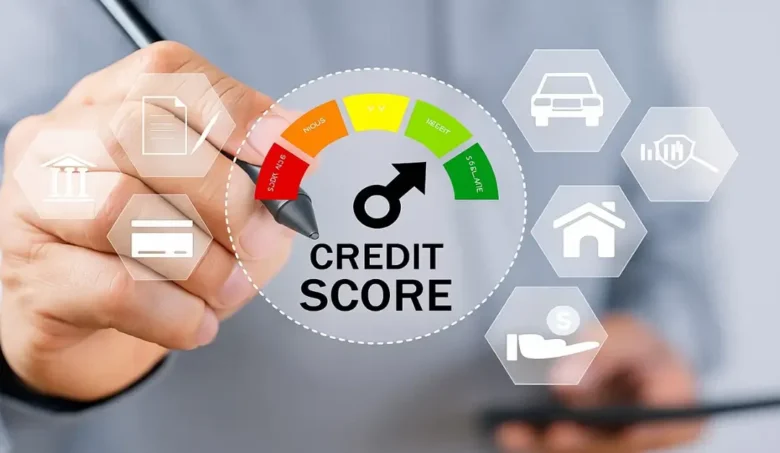Credit scores are one of the most influential financial tools. They can influence a person’s capacity to borrow money, secure a job, or rent an apartment. The credit score is a three-digit number that shows how responsible you are when it comes to debt and credit. Credit scores are often used by lenders, landlords, and employers to quickly assess financial reliability. Many people don’t fully understand the importance of a credit rating or how it impacts their lives. Understanding credit scores and how to manage them is a great way to build a solid financial foundation.
What a Credit Score Represents
Credit scores are a numerical summary of your history. This score shows you how likely you are to repay money you borrow. This score is determined by factors such as your payment history and debt, how long you’ve been using credit, or the type of credit account you hold. The higher your credit score, the more trustworthy you seem to lenders. A low credit score may indicate financial risk. Understanding these concepts can help explain why credit score matters so much when it comes to financial decisions that impact everyday life.
Credit Scores are Important for Borrowing
When it comes to borrowing, credit scores are a big factor. Your credit score is used by lenders to determine if your application will be approved and the interest rate they offer. Credit scores are often associated with lower interest rates. T These improvements can result in thousands of dollars saved over the course of time. Low scores can result in higher costs, stricter terms, or even rejection. Maintaining a favorable credit score is important to be able to borrow money at a reasonable price.
How Credit Scores Affect Daily Life
Credit scores affect more than just borrowing money. They also have a profound impact on many aspects of our daily lives. Before renting apartments, landlords cexaminecredit scores to determine if tenants will pay on time. Utility companies may use credit scores when deciding whether or not to ask for a deposit. In certain industries, employers cexaminecredit histories as part of their hiring process. Credit scores affect far more than loans. Credit scores can affect your ability to live in a certain area, the cost of services you pay, and even how you are able to advance in your career.
Improve Your Credit Score by Using Payment History
Payment history is one of the most important factors in determining your credit score. Paying your bills on time consistently shows you’re reliable. Late or missed payments will lower your credit score. EIf you inform the credit bureaus about a missed payment, it can significantly lower your score. It is important to stay organized and make payments on time. Developing a habit of making timely payments is one of the best ways to improve or maintain a good credit score.
Debt Levels and Credit Scores
Credit utilization, or the amount of debt you have compared to available credit, is another important factor. Lenders may view you as a greater risk if you use your credit limit frequently, even when you pay on time. Credit utilization is generally viewed as a good sign. It shows you are responsible with credit and don’t rely on borrowing too much. To protect your credit score, managing debt responsibly is a crucial part.
The Importance Of Credit History Length
Your credit score is also affected by the length of your history. Your financial habits will reflect better if you’ve been responsibly using credit for a longer period of time. Closing old accounts may lower your score because it decreases your average credit history. Building credit early can also benefit you in the future, even if it is small. A long history of responsible repayment and borrowing helps you establish yourself as a reliable borrower.
The Impact of Different Credit Accounts
The number of credit accounts that you hold is also taken into consideration when calculating your credit score. Credit cards, auto loans, or mortgages, in a healthy balance, show that you are able to manage multiple types of debt. It does not mean that you should take out unnecessary loans. However, responsibly managing credit accounts can improve your score. This shows lenders that you are capable of handling a variety of financial responsibilities.
How Checking Your Own Credit Score Helps
Monitor your credit score regularly to keep track of your progress. You can see your current situation and areas that need improvement by regularly checking your credit report and score. You can also spot any errors or fraudulent activities that may damage your credit score if they are unnoticed. Checking your credit score can be a scary experience for many people. However, it is not a hard inquiry that will affect your credit. Knowing your credit score is the first step in improving it.
Conclusion
Understanding credit scores and why they are important is essential for financial success and stability. Credit scores impact borrowing costs, employment opportunities, housing prospects, and daily expenses. Credit scores are based on factors such as payment history, debt level, credit history length, and account variety. To maintain a good credit score, you need to have consistent habits such as paying your bills on time, managing debt, and regularly monitoring your credit. Anyone can protect and build their credit score with knowledge and discipline. A good credit score can open doors, reduce financial costs, and provide opportunities for a more secure financial future.
FAQs
1. What is a high credit score?
Scores above 740 are considered excellent to excellent.
2. Checking my credit score—will it lower it?
Checking your credit score does not lower your score. Only hard inquiries, like applying for loans, can lower your score.
3. How long does it usually take to raise a credit rating?
It takes time to improve your credit score, and it depends on how you manage your finances. On-time payments and responsible credit usage can yield results within a few months.
4. Why is credit usage important?
Credit utilization is the percentage of credit that you have used. Low utilization is good for your credit score, while high utilization signals risk.
5. Can I build my credit without a card?
You can build your credit by using other methods, such as student loans, auto loans, or credit builders, provided that the payments are reported to the credit bureaus.




